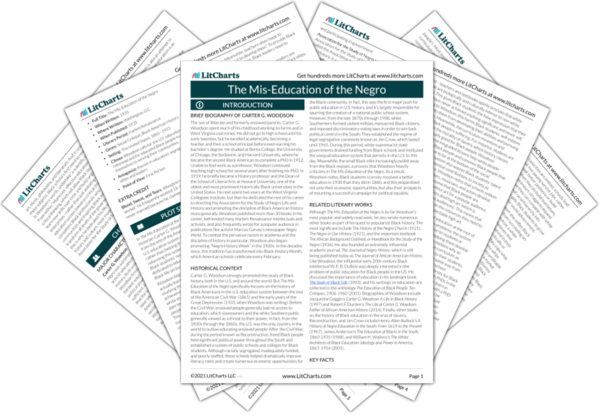Woodson answers his own question about the school system’s social purpose: beyond just failing to educate Black students, it also actively oppresses them by feeding them a faulty narrative about their history and abilities. So, it really does the opposite of educating them: it stifles their potential rather than helping them achieve it. In turn, this faulty education also turns the Black community against itself and prevents its advancement. This explains why Woodson so strongly believes in studying Black history: he thinks that, by learning about their history, Black students will start to believe in their potential and take steps toward fulfilling it.
